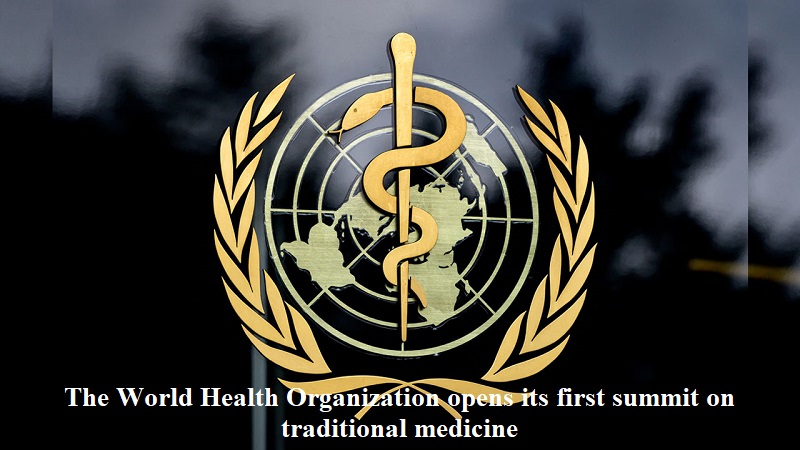
The World Health Organization (WHO) inaugurated its inaugural summit on traditional medicine on Thursday, focusing on gathering evidence and data to ensure the safe utilization of such treatments.
As per the UN health agency, traditional medicines serve as the “primary recourse for millions of individuals globally”. The discussions in India are uniting policymakers and academics with the objective of “eliciting political commitment and evidence-driven action” in favor of these treatments.
WHO Director-General Tedros Adhanom Ghebreyesus, inaugurating the summit, stated that the organization’s efforts are directed towards amassing evidence and data to guide policies, standards, and regulations for the secure, cost-effective, and equitable application of traditional medicine.
While traditional medicine has the potential to bridge gaps in healthcare access, its true value lies in its “appropriate, effective, and above all, safe” utilization, grounded in the latest scientific knowledge, Tedros cautioned earlier.
However, the WHO encountered criticism from online critics who accused it of according scientific validation to pseudoscience after it posted a question asking if its followers had employed various treatments, including homeopathy and naturopathy.
In response, the WHO acknowledged the “concerns” and admitted that its “communication could have been clearer”.
The WHO Traditional Medicine Global Summit, spanning two days, is being held concurrently with a meeting of G20 health ministers in Gandhinagar, India.
Nobel laureate and Chair of the WHO Science Council Harold Varmus addressed the summit via video link, emphasizing the widespread use of traditional medicines and the importance of comprehending their ingredients and efficacy.
The summit, intended to become a recurring event, follows the establishment of a WHO Global Centre for Traditional Medicine in India’s Gujarat state last year.
While traditional medicines have extensive utilization in certain regions, they also confront significant criticism. The UN health agency defines traditional medicine as the collective wisdom, skills, and practices adopted over time to sustain health and manage physical and mental illnesses.
Nonetheless, numerous traditional remedies lack scientific validation, and conservationists argue that this industry fuels the illicit trade of endangered animals, endangering entire species.
The Covid-19 pandemic witnessed a surge in the use of homemade remedies, including a green herbal drink based on Artemisia, touted as a cure by Madagascar’s president. While Artemisia has established efficacy in treating malaria, its application against Covid-19 drew skepticism from the medical community.
China has a rich tradition of traditional medicine, but European medical authorities have previously called for its regulation to be aligned with that of conventional medical approaches.
WHO’s Chief of Research, John Reeder, stressed the need for rigorous scientific standards in advancing traditional medicine, similar to other healthcare domains.
Out of WHO’s 194 member states, 170 acknowledged the utilization of traditional and complementary medicine since 2018. However, only 124 reported having regulations for herbal medicine, and just half had a national policy regarding such practices and treatments.
The WHO underscored that “natural” doesn’t necessarily signify safety, and that centuries of use don’t guarantee efficacy. Therefore, scientific methodologies must be applied to provide robust evidence.
Around 40 percent of approved pharmaceutical products currently trace their origins to natural sources, per the WHO, which pointed out landmark drugs derived from traditional medicine, such as aspirin, based on formulations involving willow tree bark.

Post Your Comments